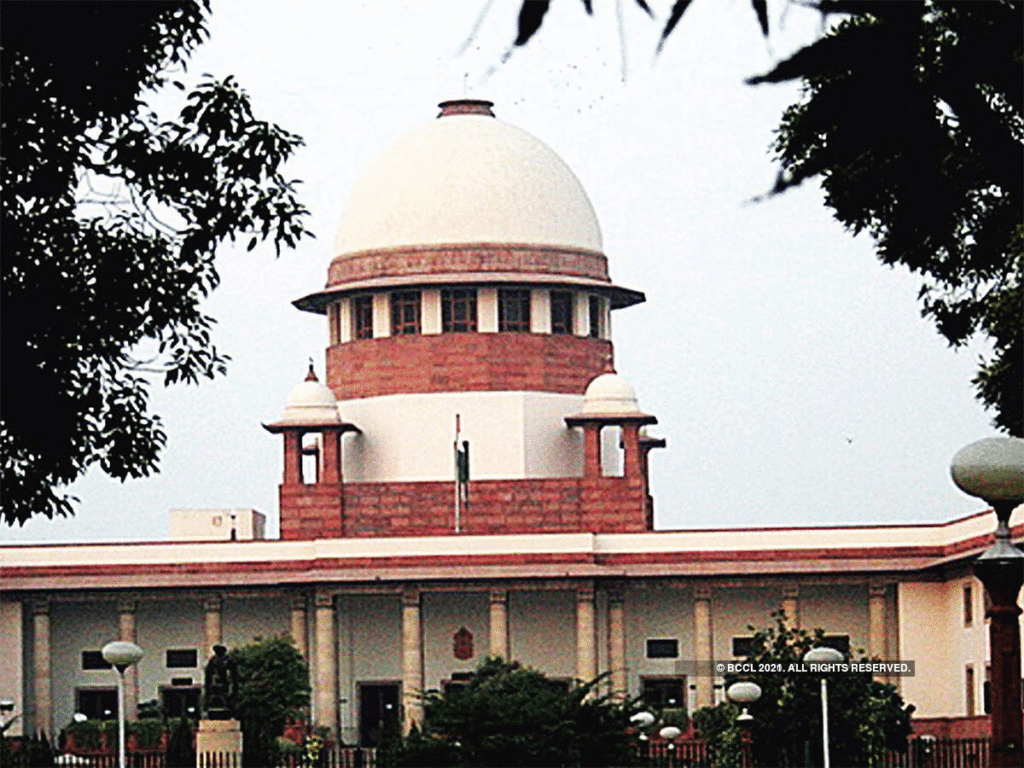By P Sudhir
The cheap political drama currently unfolding in Delhi over the latest decision to refer a Supreme Court judgment to the court itself – at the behest of President Droupadi Murmu – seeking clarification on an earlier order regarding the timeline for governors to either assent to or return bills passed by the state legislature, is nothing short of a theatre of the absurd. The court’s original order was not arbitrary; it was grounded in a long-established line of jurisprudence shaped by numerous judgments.
The president’s reference to the apex court has been made under Article 143(1) of the Constitution, raising fourteen questions in relation to the earlier order over the conduct of Tamil Nadu governor, R N Ravi. It was the Tamil Nadu government that had approached the Supreme Court, citing the governor’s inordinate delay in granting assent to fourteen bills passed by the Assembly. The Constitution’s framers used the phrase “as soon as possible” to describe the expected timeframe for gubernatorial assent or return of a bill – deliberately polite, but not indefinite. Unlike some other constitutions, ours does not require a presidential reference to challenge a law. Any citizen can approach the courts – from the lowest judiciary to the Supreme Court. The provision for seeking the court’s opinion is clearly defined, and even when such an opinion is sought under this provision, it is non-binding.
Given that, the centre’s decision to indulge in this political spectacle appears driven by extraneous considerations. In the context of the current Modi government, it is tempting to infer that the reservation –if not outright discomfort – stems from its political opposition to the free exercise of legislative power by a non-BJP led state assembly.
After the Supreme Court judgment in the Tamil Nadu case, there was no uproar, and the governor remained conspicuously silent. Yet, the political slugfest was triggered by an ebullient vice president, Jagdeep Dhankhar. Citing the judgment, he made the sweeping remark that the Supreme Court had turned into a “super-parliament.” Meanwhile, Governor Ravi behaved as though nothing had occurred. Even after being stripped of his role as chancellor of several Tamil Nadu state universities, he proceeded to call a meeting of their vice chancellors at a picturesque hill station.
The normal legal recourse for dissatisfaction with a judgment is to file a review petition – since no appeals lie beyond a Supreme Court decision. In rare circumstances, a curative petition can also be filed. Another option would be to introduce legislation in Parliament to overturn the effect of the judgment – much like the government did with the composition of the search committee for appointing Election Commissioners. But none of these avenues were pursued. Nor did the government consult the Attorney General, the constitutional authority for such matters.
Let there be no confusion. After the 42nd Amendment to Article 74, the president is constitutionally bound to act on the advice of the council of ministers. This current presidential reference is nothing more than a political message – a symbolic assertion that the government does not accept the Supreme Court’s interpretation of “as soon as possible” as requiring a defined time limit. This position contradicts established jurisprudence, notably the landmark 1974 Shamsher Singh case, which held that governors must act on the advice of the elected state cabinet and are not free agents like the monarchs of the UK or presidents in the US.
Thus, we are trapped in this theatre of the absurd, where the Supreme Court may or may not respond to the president’s queries – and even if it does, the opinion will not be binding. The Modi government’s grandstanding, while seemingly benign extravagance, is deeply telling, especially in light of the challenges it currently faces. But it would be naïve to assume this is mere political theatre. This government is ideologically driven by Hindutva – a vision that rejects the foundational spirit and arrangements of the Indian Constitution. The RSS, whose principal ideologue is M S Golwalkar, never accepted federalism in its true sense had always advocated for smaller states and a centralised unitary government.
That the Constitution today stands as a bulwark against these invasions on foundational ideals is once again made evident through what is, in essence, a theatre of the absurd. The true objective is not to secure a constitutional interpretation of “ASAP,” but to undermine the sovereign authority of democratically elected legislatures. (IPA Service)




 Amidst PM’s Fierce Speech Against Pak Terror, Sharif Says That India-Pak Talks Are Due In Saudi Arabia
Amidst PM’s Fierce Speech Against Pak Terror, Sharif Says That India-Pak Talks Are Due In Saudi Arabia 